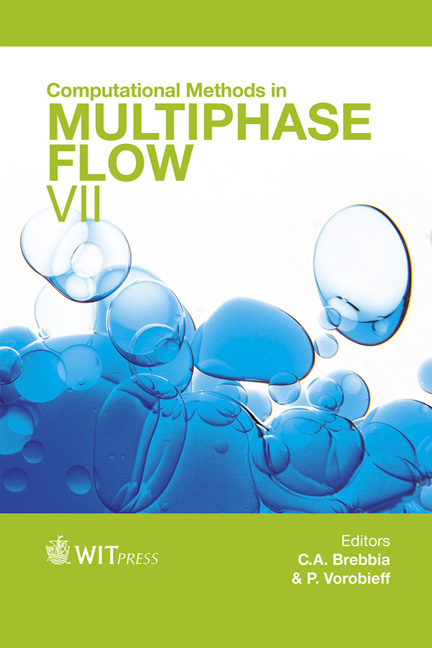Extension Of The 1-D Characteristic Open Boundary Conditions To The Diffuse Interface Model
Price
Free (open access)
Transaction
Volume
79
Pages
11
Page Range
115 - 125
Published
2013
Size
202 kb
Paper DOI
10.2495/MPF130101
Copyright
WIT Press
Author(s)
J. Desmarais & J.Kuerten
Abstract
A novel technique is developed for solving multi-phase flows in unbounded domains using the Diffuse Interface Model (DIM) in 1-D. It extends open boundary conditions originally designed for the Navier–Stokes equations. The non-dimensional formulation of the DIM makes it possible to generalize the approach to any fluid. The equations support a steady state whose analytical approximation close to the critical point depends only on temperature. This feature enables the use of detectors at the boundaries switching between conventional boundary conditions in bulk phases and a multi-phase strategy in interfacial regions. The technique is applied to fluids experiencing a phase transition where the interface between the phases travels through one of the boundaries. When the interface crossing the boundary is fully developed, the technique greatly improves results relative to cases where conventional boundary conditions can be used. Limitations appear when the interface crossing the boundary is not a stable equilibrium between the two phases: the terms responsible for creating the true balance between the phases perturb the interior solution. The approach can be extended to multiple spatial dimensions. Keywords: multi-phase flows, open boundary conditions, diffuse interface model, characteristics, interface-boundary interaction, Navier–Stokes.
Keywords
Keywords: multi-phase flows, open boundary conditions, diffuse interface model, characteristics, interface-boundary interaction, Navier–Stokes.





